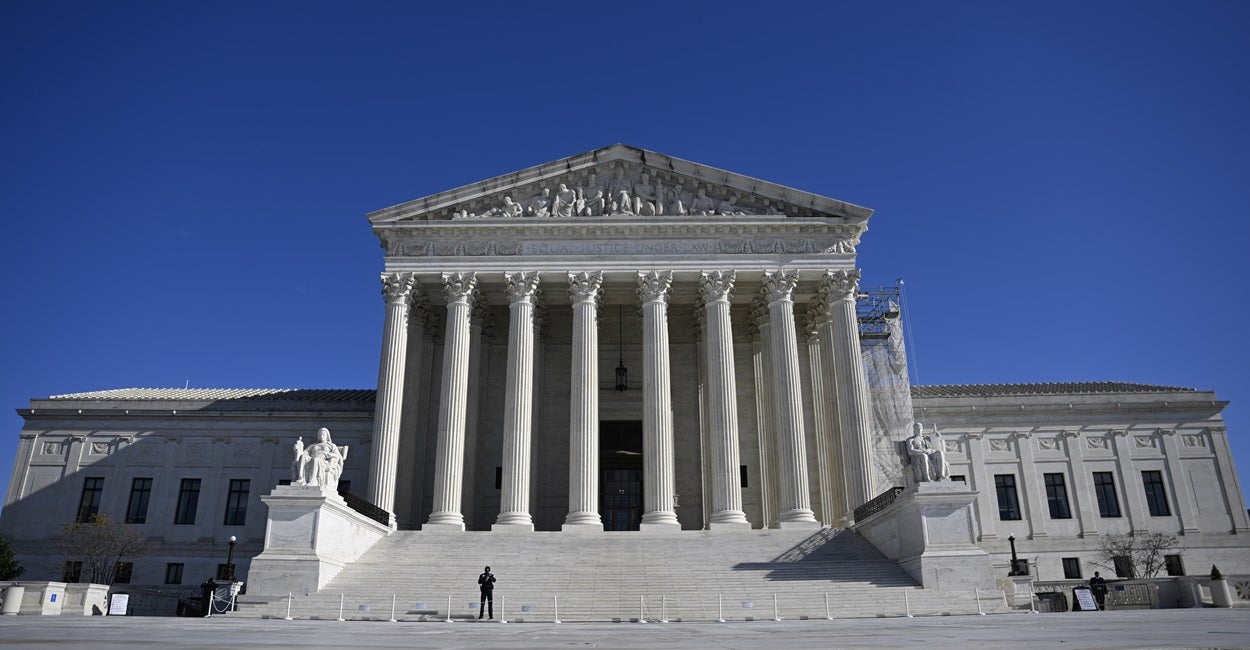Supreme Court Could Send Message on Climate Change Lawsuits
The U.S. Supreme Court will soon decide whether to hear cases with major impacts for the separation of powers and for left-leaning states’ and municipalities’... Read More The post Supreme Court Could Send Message on Climate Change Lawsuits appeared first on The Daily Signal.

The U.S. Supreme Court will soon decide whether to hear cases with major impacts for the separation of powers and for left-leaning states’ and municipalities’ ability to use their state courts as pawns to establish national climate change policy. To preserve federalism, the stability of the rule of law, and separation of powers in our Republic, it is imperative that the Supreme Court grant certiorari to take the cases.
The climate-change suits percolating across the country, of which these petitions for certiorari are representative, feature an alliance between fee-driven plaintiffs’ attorneys and frustrated environmental activists. They want to get de facto regulation and retroactive liability imposition illegitimately from activist courts that they know would be impossible to get in the sunlight of the democratic process.
Together, these lawyers and activists are seeking to unconstitutionally turn courts into climate policymakers.
These are not cases principally about climate change. They are about the separation of powers and the proper division of authority between the federal and state governments. The plaintiff in the appeal, the city and county of Honolulu, Hawaii, is seeking damages from industry for emissions all over the world. Honolulu is effectively setting itself up as an international energy regulator. The Constitution and the Clean Air Act do not allow states to interfere with federal prerogatives and the policy preferences of their sister states.
We entered into a federalist union in order to entrust certain interstate and global matters to a federal government rather than allowing meddling by states. Issues like energy policy and sensitive decisions about geopolitical issues of climate change require complex balancing decisions that are exclusively within the purview of Congress and federal policymaking authorities, not state courts.
By granting cert, the Supreme Court has a chance to make that clear and put a stop to the dangerous proliferation of climate-change lawsuits. In so doing, the Supreme Court can protect constitutional limits by explaining that courts may not invent law to make climate change policy. And it can concomitantly clarify that federalism requires that some issues be available for Congress to claim as exclusively federal, lest we have a chaotic mix of state approaches that risk interfering with an effective, unified process to solve the very climate problems the activist plaintiffs seek to abate.
If the Supreme Court does not grant cert, the plaintiffs will have leverage to extract settlements from defendants who could easily see the costs of defending even meritless litigation too high to justify spending money, even when their rights and actions would ultimately be vindicated. That is especially true when, as here, denial requires the defendants to defend actions in scores of courtrooms across the country simultaneously.
A cert denial would also be a dangerous signal that it is open season for these lawsuits in city and county courtrooms in every state across the United States. The financial incentives to bring these lawsuits guarantee the cases will continue to proliferate. Money-strapped states, counties, and municipalities see damages awards as a way to solve their budgetary problems. And the plaintiffs’ attorneys can expect a fortune in fees.
These petitions give the Supreme Court the chance to decide if the law allows such chaos. If the law does not allow it, as seems the more likely conclusion under our constitutional design, then the Supreme Court can protect Congress’s domain and stop the onslaught before it begins.
To grant cert would also mean rejecting the arguments recently made in a brief filed in December by the solicitor general of the United States, representing a legacy-seeking, midnight protestation to granting cert of the outgoing Biden administration. The Biden administration’s brief in the Honolulu case recognizes that the defendants may ultimately prevail on their federal law arguments–yet and still, the solicitor general claims that the defendants should be required to litigate the cases nonetheless. Those conclusions twist the issues the Supreme Court is being asked to decide. Preemption and federal exclusivity doctrines are both critical to preserving federalism but they also exist as threshold mechanisms to dismiss a case because they serve gatekeeping functions. They are meant to prevent litigation from leaving the gate lest a state court have the ability to impose substantial litigation and uncertainty costs on defendants and disrupt federal policies along the way. The Supreme Court understands this and should not be persuaded by this misplaced plea to let meritless cases proceed. They should see that brief for what it is. The policy preferences of the administration to feed its base, to punish energy companies, and to push changes it could never get through Congress have crowded out the solicitor general’s responsibility to use its unique briefing privilege to defend federal prerogatives and federal domain by defending federal preemption here.
Importantly, the Supreme Court has already disallowed federal common law nuisance claims relative to climate change. Justice Ruth Bader Ginsburg delivered that decision, AEP v. Connecticut, for a unanimous Court in 2011. That decision did not expressly disallow state common law claims of the kind Hawaii has brought here, namely nuisance and misrepresentation. The Court’s reasoning in AEP should make these pending cases quick and easy to dispose of, if the justices decide to take them.
We publish a variety of perspectives. Nothing written here is to be construed as representing the views of The Daily Signal.
The post Supreme Court Could Send Message on Climate Change Lawsuits appeared first on The Daily Signal.










